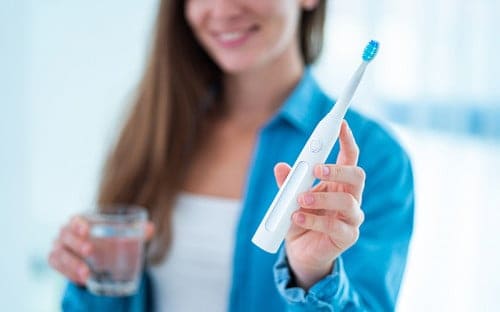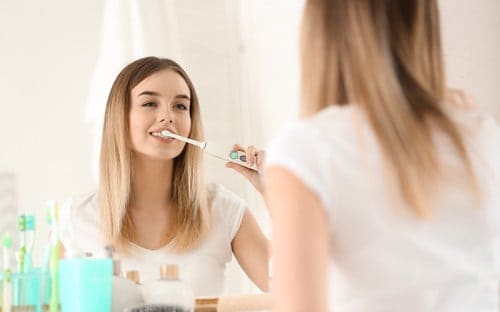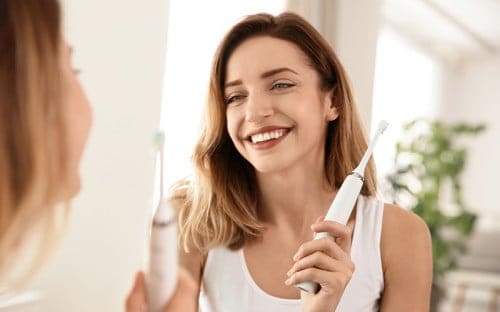
Electric toothbrushes are just one more tool you can use at home to keep your smile healthy between professional cleanings.
Except for a few leaps in design over the last 3,000 years, toothbrushes haven’t changed much since ancient Babylonians chewed on the end of a twig until its pulp was soft like a brush. One change that significantly improved the toothbrush’s function was the development of the electric toothbrush in the late-1930s in Switzerland. The electric toothbrush allowed people to care for their mouths more efficiently and helped people with arthritis and other muscle-control issues be a little more independent.
The Same, But Different

While each electric toothbrush looks similar, each brand has unique features to appeal to different users. Some have heads that rotate or oscillate, and others use ultrasonic technology to break up plaque and food debris. Some have timers that beep at certain intervals, and others have multiple settings for specific issues like massaging your gums or stopping the brush head when you’re brushing too hard.
But each model offers the same benefit: The ability to gently hold the brush in place while the motor and bristles do the hard work of cleaning the teeth.
Relief for Aching Joints
For patients with arthritis and other conditions that affect the joints and muscles, electric toothbrushes put a little control back in their hands. It might not seem like a big deal to most of us, but the ability to brush your own teeth when you haven’t been able to grip a toothbrush well can make all difference in one’s self-esteem.
Perfect for Little Hands
 Children don’t usually develop the dexterity to brush without help until they are about seven years old or can tie their shoelaces unaided. Even then, experts recommend adults help children brush their teeth or at least monitor their brushing habits to avoid cavities. An electric toothbrush helps kids feel a little independence while brushing. There are many different electric models for children on the market today. Some have bright, flashing lights, and others play songs for the recommended two-minute brushing time.
Children don’t usually develop the dexterity to brush without help until they are about seven years old or can tie their shoelaces unaided. Even then, experts recommend adults help children brush their teeth or at least monitor their brushing habits to avoid cavities. An electric toothbrush helps kids feel a little independence while brushing. There are many different electric models for children on the market today. Some have bright, flashing lights, and others play songs for the recommended two-minute brushing time.
Deeper Clean for Orthodontic Patients
Patients who have traditional braces can greatly improve their homecare by using an electric toothbrush. They can clean more thoroughly, and the oscillating or vibrating brush head means bristles can get into smaller spaces more easily than a manual toothbrush. Just make sure the bristles are soft, and the brush head is small so it can get into the spaces between the brackets and teeth.
While everyone can benefit from an electric toothbrush, they are not a replacement for professional cleanings or an excuse to skimp on your homecare routine. An electric toothbrush can help boost your at-home care and help compensate for coordination problems due to age and medical issues. However, you should still consider asking for help if brushing and holding a toothbrush is difficult.



